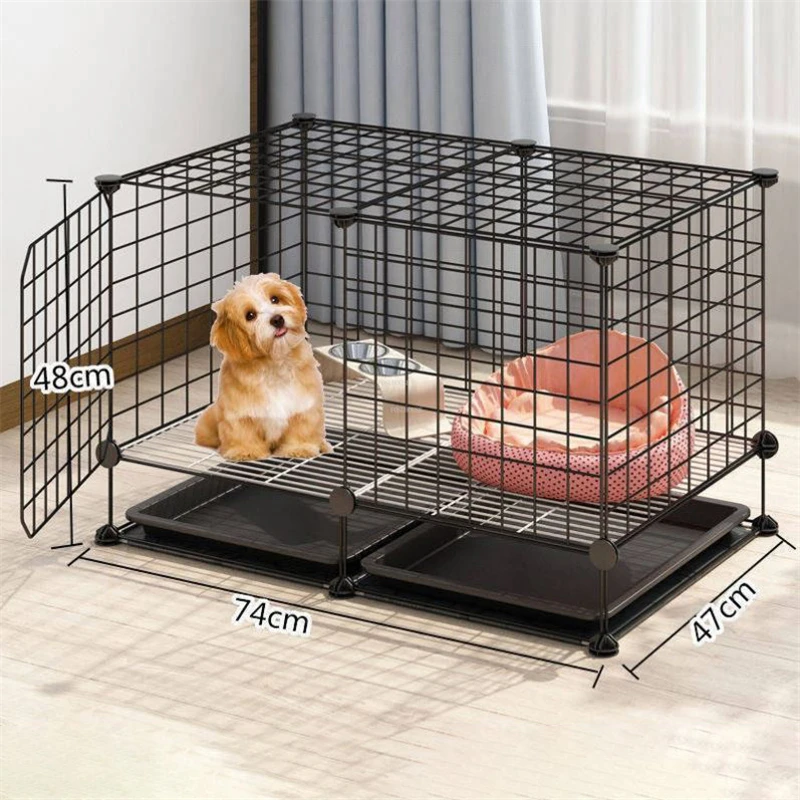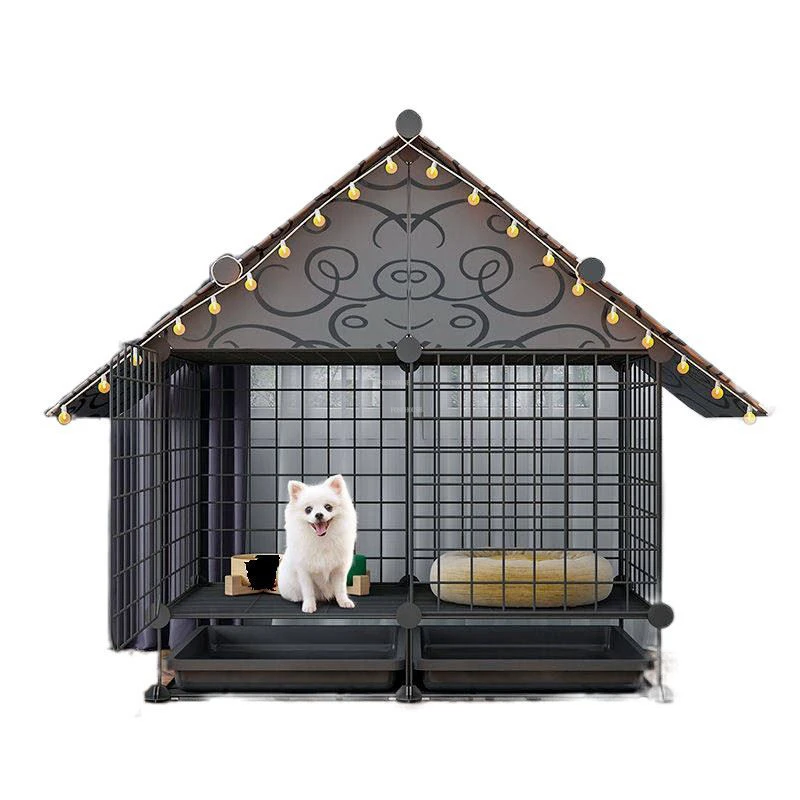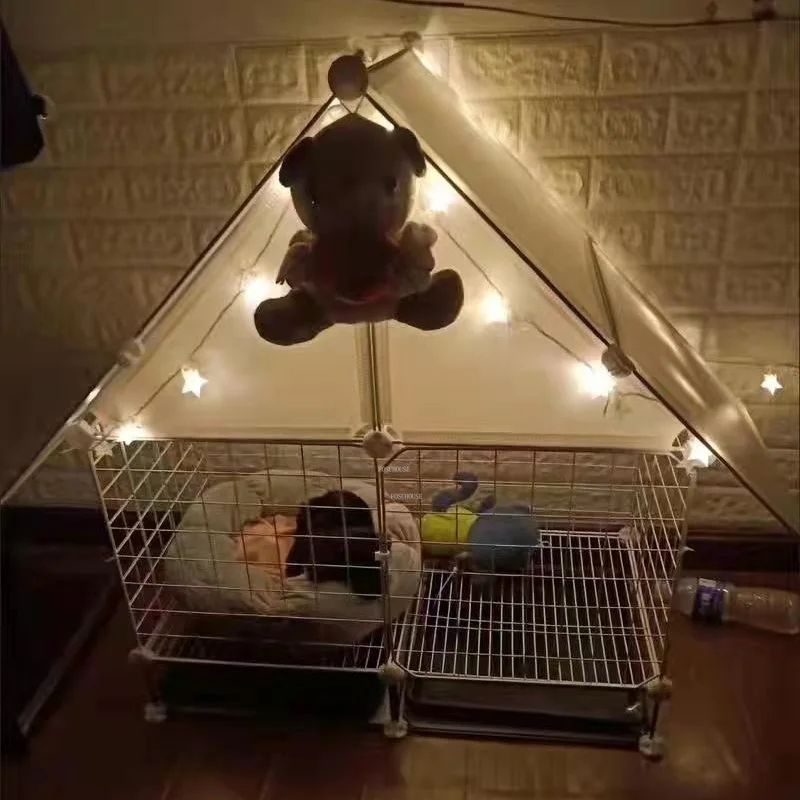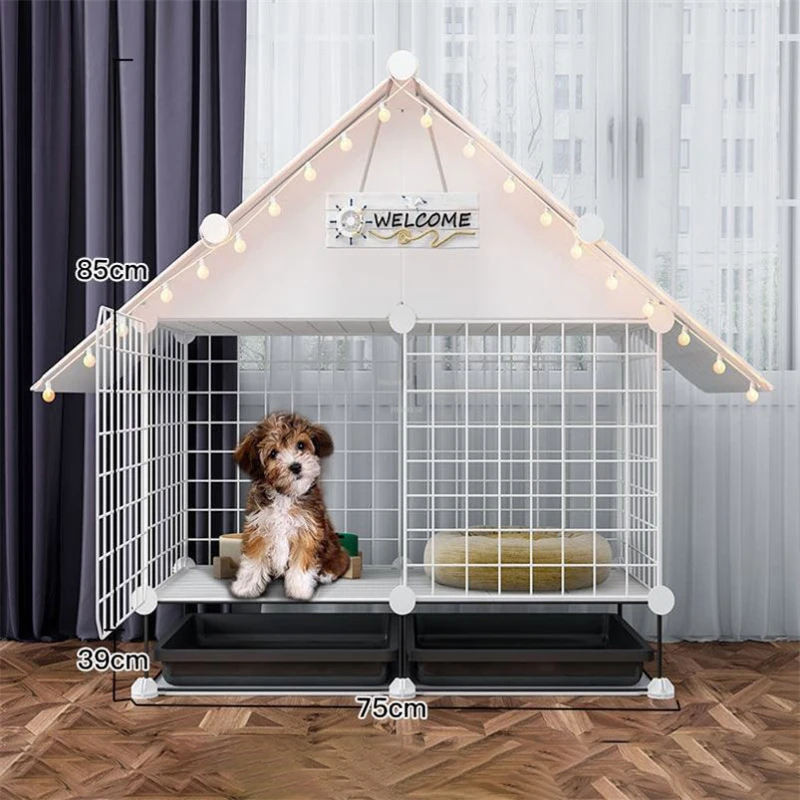Overview of Kennel Cough
Dog kennel cough is a common infection in dogs that affects their respiratory system. It causes a loud, hacking cough, often compared to a goose’s honk. Various viruses and bacteria can cause kennel cough, which inflames a dog’s voice box and windpipe. While most dogs with robust immune systems can recover without veterinary care, kennel cough can be more serious in puppies, older dogs, and those with existing health issues.

Dogs can catch kennel cough from close contact with infected dogs, through airborne droplets, or by sharing contaminated items. It’s highly contagious, so if your dog has kennel cough, keep them away from others to prevent spreading. Symptoms often appear a few days to two weeks after exposure and can last up to three weeks. Watch for signs like sneezing, a runny nose, and less energy.
If your dog shows signs of kennel cough, seek advice from your veterinarian as soon as possible. Isolation from other dogs is crucial, and in some cases, your vet might recommend certain medications or treatments. Vaccines are available to help prevent the disease, particularly if your dog socializes often or stays in kennels. Remember, prompt action can help manage the illness effectively and keep your furry friend healthy.
Recognizing the Symptoms of Kennel Cough
Recognizing kennel cough early in your dog is crucial. The key symptom is a distinct hacking cough that sounds like a goose honking. This cough can persist and is a clear sign your dog may be ill. Look for other symptoms such as sneezing, runny nose, or eye discharge. Your dog might show less interest in food and have lower energy levels. They may also have a mild fever.
It’s important to note that symptoms can vary in intensity. They usually appear a few days to two weeks after exposure. They can last one to three weeks or more. The cough itself can seem dry or, sometimes, mucus-filled. Unlike a simple throat irritation, kennel cough coughs are consistent and do not improve quickly.
Be vigilant for any changes in your dog’s behavior. Any signs of discomfort when eating or breathing should prompt a call to the vet. Timely observation and reaction can prevent complications. If you see signs, isolate your dog and contact your veterinarian for guidance.
Understanding the Transmission of Kennel Cough
Understanding how your dog can contract kennel cough is important for prevention. This highly contagious disease can spread in several ways.

Close Contact with Infected Dogs
Dogs transmit the infection to each other through close contact.
Airborne Droplets
When an infected dog coughs or sneezes, it releases droplets into the air. Healthy dogs can breathe in these droplets and get sick.
Contaminated Objects
Objects like toys, bowls, or leashes may carry the virus or bacteria. If your dog comes into contact with these, they may catch the disease.
Being aware of these transmission methods helps in taking effective preventive measures. Minimizing exposure to these factors can reduce your dog’s risk of kennel cough.
Assessing the Risk: When is Kennel Cough Dangerous?
Usually, kennel cough is not life-threatening. But sometimes, it can become quite serious. Young puppies, older dogs, and dogs with health issues face higher risks. The disease can progress to pneumonia in these cases.
Kennel cough’s symptoms can be mild or severe. Look out for persistent coughing and any signs of breathing trouble. If symptoms don’t improve, or if your dog seems very sick, get vet help immediately.
Not all dogs show the same level of illness. Watch carefully for how your dog acts and feels. Even if their cough seems mild, other health problems can make it dangerous.
If you notice severe symptoms or if your dog is not getting better, contact your vet. They can assess the risk and advise if your dog needs medical treatment.
Remember, each dog is different. What’s harmless for one may be harmful for another. Always err on the side of caution and seek professional advice when in doubt.
Immediate Steps to Take if Your Dog Has Kennel Cough
If you suspect your dog has kennel cough, act fast to help them and protect others. Here are immediate steps to follow:
- Contact Your Veterinarian: Make the call as soon as you notice symptoms. Explain the situation for best advice.
- Isolate Your Dog: Keep your pet away from other dogs to stop the spread.
- Rest and Hydration: Ensure they rest and drink lots of water to stay hydrated.
- Minimize Stress: A calm environment can help your dog recover faster.
- Monitor Symptoms: Keep an eye on the cough and any changes in your dog’s health.
By taking these immediate actions, you set your dog on a path to recovery and keep other dogs safe. Speak to your vet for any special care your dog might need.

Isolating Your Dog to Prevent Further Spread
Once your dog has kennel cough, isolation is key in stopping the spread. Keep your dog away from other dogs and public areas where dogs gather. This includes dog parks, kennels, and daycare facilities. If you have multiple dogs in your household, you’ll need to separate the sick dog from the others as much as possible. Use different food and water bowls, and avoid sharing toys or bedding. Clean and disinfect these items regularly to kill any viruses or bacteria.
Monitor your dog for any signs of improvement or worsening of symptoms, and consult with your veterinarian for the appropriate duration of isolation. Typically, dogs with kennel cough are contagious for about 10 to 14 days after symptom onset. However, because some dogs can be carriers without showing symptoms, it’s crucial to follow your vet’s recommendations. Remember to wash your hands frequently when handling your dog and after cleaning their area. Practicing good hygiene is an essential part of preventing kennel cough from spreading further.
Treatment Options and Home Care for Kennel Cough
When your dog has kennel cough, you have several ways to help them recover. Here’s what to do.
Veterinary Treatments
If your vet suggests it, there may be medications to help. These can include cough suppressants, antibiotics, or anti-inflammatories. But remember, not all cases need medicine. Follow your vet’s advice closely.
Home Remedies
At home, you can do much to ease your dog’s discomfort. Keep the air humid with a vaporizer, or let them inhale steam from a hot bath. This can soothe their throat. Small meals can help if their cough makes eating hard. Also, keep their neck free from collars. Use a harness instead when you go for walks.
Rest and Hydration
Ensure your dog rests well. A comfy, quiet place helps them heal. Give them plenty of water. This keeps their throat moist and helps the healing process.
Limiting Exercise
Avoid long walks and active play. This can make the cough worse. Short, gentle outings are okay if your dog feels up to it.
Watch Their Health
Keep an eye on your dog. Look for signs of getting better or worse. If things don’t improve, call your vet again.
Follow-up
After your dog recovers, check with your vet. They might need a follow-up to make sure they’re truly well.
With care and attention, your dog can bounce back from kennel cough. Use these tips, and always listen to your vet’s instructions.
Prevention Strategies: Vaccination and Hygiene
Preventing kennel cough is key to your dog’s health. Vaccination and good hygiene can help. Here are steps to protect your dog:
Vaccinating Your Dog
Check with your vet about a kennel cough vaccine. This vaccine guards against common causes of the illness. Though not foolproof, it lowers the chance of infection.
Maintaining Good Hygiene
Clean and disinfect your dog’s items regularly. This includes bowls, toys, and bedding. Wash your hands after touching your dog or their belongings.
Reducing Exposure to Ill Dogs
Keep distance from dogs that cough or show signs of illness. Avoid places with many dogs, like parks, during outbreaks.
Establishing a Clean Environment
Ensure your home is well-ventilated. Use air purifiers to reduce germ spread in the air.
With these prevention strategies, you can lessen your dog’s risk of contracting kennel cough.
